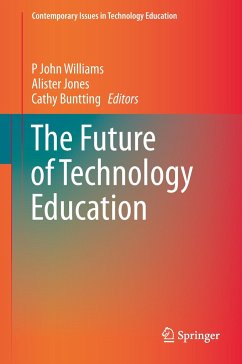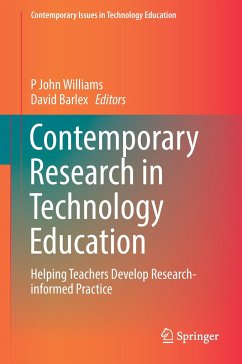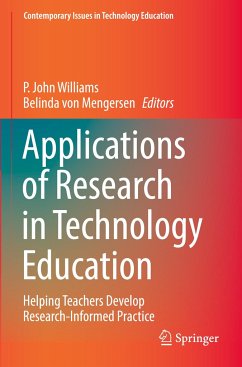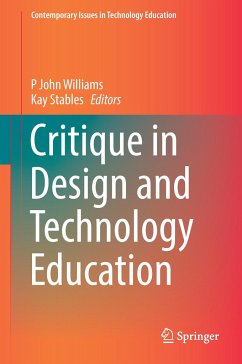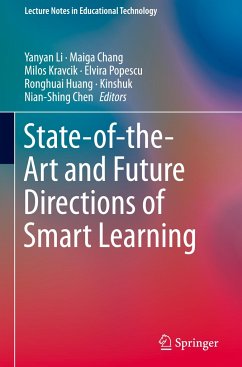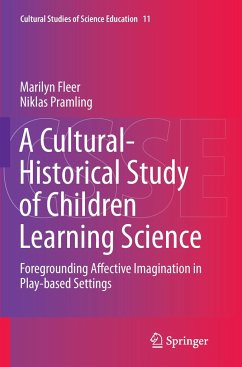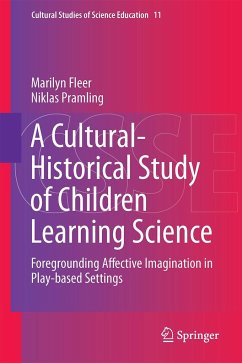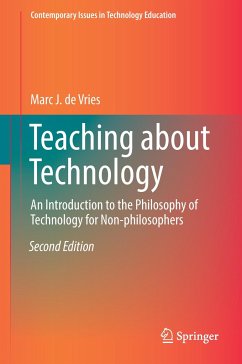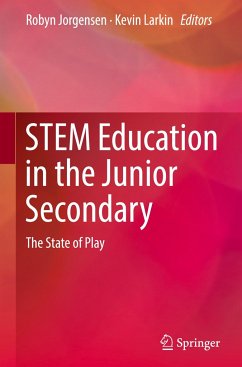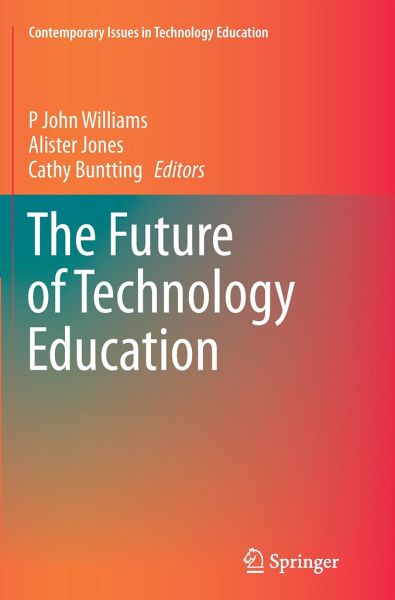
The Future of Technology Education
Versandkostenfrei!
Versandfertig in 6-10 Tagen
91,99 €
inkl. MwSt.

PAYBACK Punkte
46 °P sammeln!
Twenty-five years ago there was increasing optimism in policy, curriculum and research about the contribution that technology education might make to increased technological literacy in schools and the wider population. That optimism continues, although the status of technology as a learning area remains fragile in many places.This edited book is offered as a platform from which to continue discussions about how technology education might progress into the future, and how the potential of technology education to be truly relevant and valued in school learning can be achieved.The book results f...
Twenty-five years ago there was increasing optimism in policy, curriculum and research about the contribution that technology education might make to increased technological literacy in schools and the wider population. That optimism continues, although the status of technology as a learning area remains fragile in many places.
This edited book is offered as a platform from which to continue discussions about how technology education might progress into the future, and how the potential of technology education to be truly relevant and valued in school learning can be achieved.
The book results from a collaboration between leading academics in the field, the wider group of authors having had input into each of the chapters. Through the development of a deep understanding of technology, based on a thoughtful philosophy, pathways are discussed to facilitate student learning opportunities in technology education. Consideration is given to the purpose(s) of technology education and how this plays out in curriculum, pedagogies, and assessment. Key dimensions, including design, critique, students' cultural capital are also explored, as are the role and place of political persuasion, professional organisations, and research that connects with practice.
The discussion in the book leads to a conclusion that technology education has both an ethical and moral responsibility to support imaginings that sustain people and communities in harmony and for the well being of the broader ecological and social environment.
This edited book is offered as a platform from which to continue discussions about how technology education might progress into the future, and how the potential of technology education to be truly relevant and valued in school learning can be achieved.
The book results from a collaboration between leading academics in the field, the wider group of authors having had input into each of the chapters. Through the development of a deep understanding of technology, based on a thoughtful philosophy, pathways are discussed to facilitate student learning opportunities in technology education. Consideration is given to the purpose(s) of technology education and how this plays out in curriculum, pedagogies, and assessment. Key dimensions, including design, critique, students' cultural capital are also explored, as are the role and place of political persuasion, professional organisations, and research that connects with practice.
The discussion in the book leads to a conclusion that technology education has both an ethical and moral responsibility to support imaginings that sustain people and communities in harmony and for the well being of the broader ecological and social environment.





